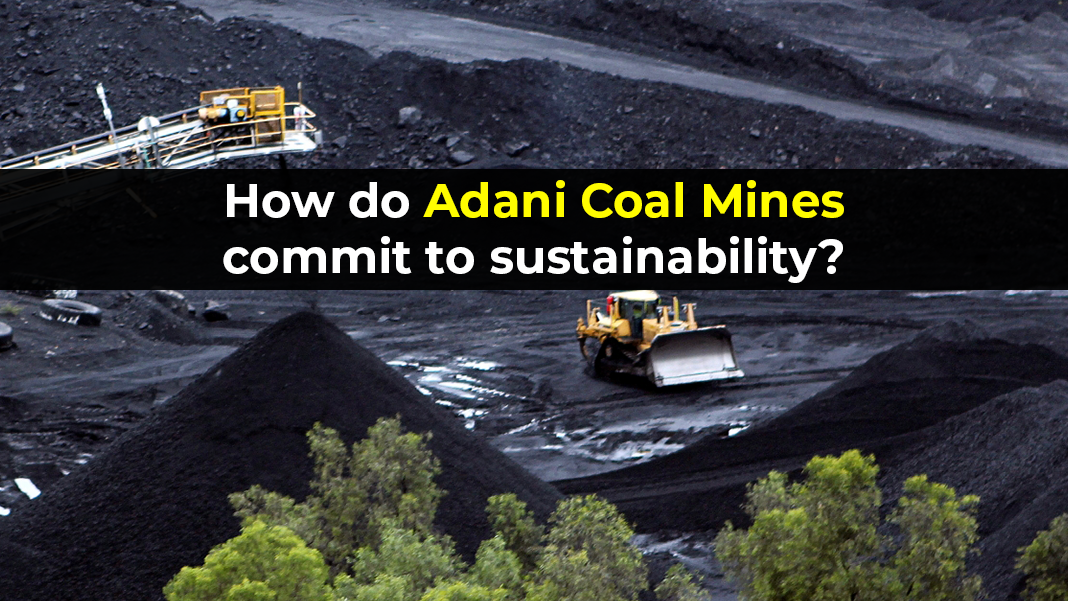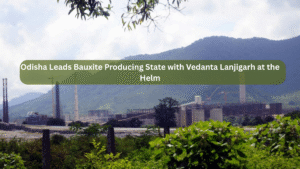
Sustainability is a long-term aim of our economy to meet the demands of economic growth at its current rate. It also ensures to have the least possible negative environmental impact. However, it goes beyond safeguarding the natural world and its delicate ecologies. The Adani coal mines aim to achieve sustainable development, which has many advantages, including optimized environmental quality, increased social fairness, inclusive and sustainable economic growth, and preservation of natural resources for future generations.
With a young population, expanding urbanization, digitalization and technological adaption, and a proliferation of entrepreneurs, India has placed a significant emphasis on ensuring that everyone has access to inexpensive power in terms of sustainability. We now have a power surplus as an economy. Maintaining social and economic equality is one aspect of sustainable development, as is protecting the environment and natural resources.
The project aims to reduce fuel costs
Energy includes power generation and transmission, renewables, and gas distribution, intending to use as few resources as possible in operations. Less resource use saves energy and reduces greenhouse gas emissions, contributing to global climate change. It contributes to environmental protection for future generations. Furthermore, it reduces the waste that must be recycled or sent to landfills and incinerators. The Adani coal mines seek to reduce fuel costs, thereby reducing the price of the power generated.
It also implies that, unlike the natural gas or coal, the price of electricity is not affected by changes in the price of fuels. Long-term energy price stability may result from the renewable energy initiatives.
Efficient mining practices
In recent years, new mining technology and laws have significantly increased mining productivity and decreased environmental effects. Mining techniques become significantly more environmentally sensitive when efficiency is improved because less waste is created. Any resource that cannot be artificially grown or manufactured must be acquired through mining.
Sustainable mining minimizes the detrimental effects of mining operations on the environment, society, and governance. The Adani coal mine project is working towards environmental stewardship, supplying society with the resources it needs now while ensuring that coming generations’ needs may be satisfied. The practices will include:
- Land acquisition
- Facilitating permits and clearances
- Mine planning and design
- Feasibility studies
- Pit optimisation
- Resource evaluation
- Life-of-mine planning and design
- Mining method selection
- Equipment optimization
Reforestation and land reclamation
Reforestation is the process of regenerating a forest by sowing seeds or saplings. By creating jobs, it benefits economies. Wood, timber, raw materials, vegetables, and fruits—all of which have significant economic value—are all provided by forests. The timber is employed in furniture production and building. Additionally, wood is necessary for the manufacturing of paper. Numerous goods are made from rubber that has been extracted from trees.
Reclaiming land entails reclaiming the seafloor to create new land. The most basic technique for reclaiming land entails filling the space with heavy rock and cement, followed by a layer of clay and soil until the desired height is reached. Due to population expansion, the need to sustain long-term economic growth, and the Adani coal mines project’s worldwide reclamation plan, valuable land has been generated in critical locations to accommodate expanding industrialization and urbanization demands.
Water management initiative by the Adani coal mines project to promote sustainability
Water management is planning, developing, allocating, and maximizing water resources while adhering to established water policies and laws. Through improved health, reduced medical expenses, and time saved, improved access to essential water and sanitation services benefits the underprivileged directly. Because it boosts productivity across all economic sectors and promotes production certainty, efficient management of water resources helps create a healthy ecosystem. Water and water systems are of utmost importance for the vast majority of operations in industrial production processes.
Water is a critical resource used in industrial processes in various ways, such as a raw material for manufacturing, processing water, cooling water, and ultimately wastewater treatment. Droughts, floods, and water pollution are water-related risks that can damage profitability and disrupt business operations in various sectors. The project intends to reduce these risks and guarantee steady economic growth by proactively managing water resources.
The Adani coal mines aims towards sustainable transportation and community engagement
The programme’s implementation must continue after it has been made accessible to the community that needs it the most through sustainable transportation and community involvement. The improvement of social inclusion and actions to enhance economic prospects are both facilitated by investments in sustainable transport. When individuals choose sustainable transit over driving themselves, congestion naturally decreases. This shortens commute times and helps those who continue to use city streets and highways.
Additionally, the Adani coal mines initiative will benefit people using public transport by reducing travel times, as it is working towards building ports and several other infrastructural developments.




